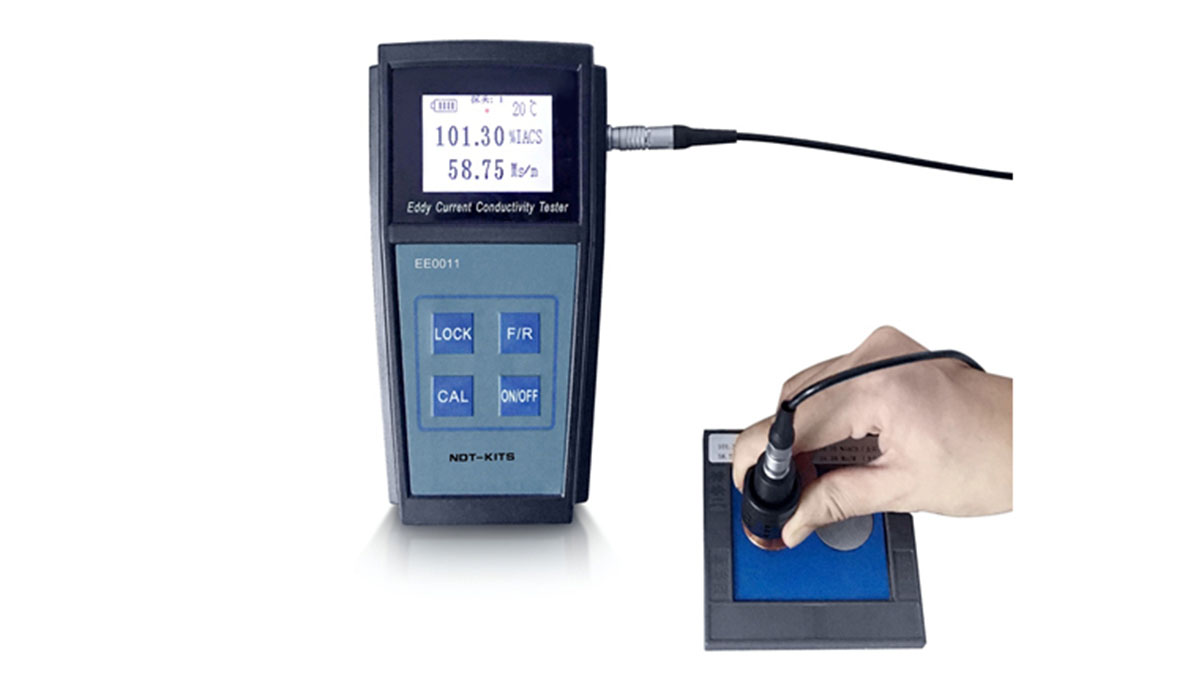Introduction
A metal conductivity meter is essential for many industrial and environmental measurements. Metallic materials, primarily metals, can conduct electricity and thus be electrically charged. A metal conductivity meter is used in the industrial sector to measure the speed of current flowing through a piece of metal.
A conductivity meter is a tool that helps assess how much current is flowing through different metal types. The test level will indicate if it can be used in contact with the human body or not.
1.What is Metal Conductivity Test?
The metal conductivity test or metal conductivity measurement is a non-destructive testing (NDT) method used to assess metallic materials. It can determine how well electricity can move through a material. Therefore, it is beneficial when verifying the purity of metals such as aluminum, copper, nickel, gold, and silver.
The process involves nothing more than measuring the electrical resistance of a metal sample using an ohmmeter. If performed regularly as part of an on-site quality control program, these measurements can help companies maximize their performance and reduce costs by identifying defective material and preventing it from entering the production process.
The conductivity test is one of many methods for determining metal quality, mainly for quality control and quality assurance. The metal material of alloys (mixture of metals) must have a contact surface with metal electrodes. After contact with the electrodes, a change in electric current occurs between the two contacts.
So, suppose the difference between the current value before and after contact is more than 0.01%. In that case, there is some alloying element in the mixture that can’t conduct electricity properly, which may cause failure in the product.
Using the electric current flow, the normal metal material can be measured in controlled steps, and easy to read the result. The process is easy and time-saving but must be carried out according to the regulations and certificates.
2.Why should we have Metal Conductivity Meter?
This instrument helps to measure the conductivity of metal material in various applications. It is widely used in industries where metal quality is essential such as steel, petroleum, electric, and aerospace industries.
This instrument gives an accurate measurement of conductivity in most metals like copper, aluminum, and so on under varying conditions quickly. It is suitable for non-metals applications too. Because it does not require any maintenance or calibration, its usage does not occupy lots of space.
The instrument can be fitted into centrifuges that make it available anywhere and at any time requiring quick, accurate results such as those obtained when transporting materials to customers or other plants.
This instrument gives the exact measurements in all electrolytes, an essential characteristic. It is suitable for continuous or batch testing and can be connected to any of your digital, modular meters for readings.
3. How to Choose Your Metal Conductivity Meter?
- Material: The material or metals of the test object should be selected carefully according to the application. Fischer Elektronik recommends a material over 20μm thick.
- Application: When you are looking for a conductivity meter, you should decide what you will measure and what it would be used for.
- Frequency: When it comes to testing the electrical conductivity, one of the most important things to consider is the frequency. It is generally a range of 100Hz-10GHz. Besides that, it’s essential to understand how long your measurement will last, for example, 10s or 10min.
To perform conductivity tests on large specimens, you should use a low bandwidth or even a spectrum analyzer because those tools can quickly and efficiently measure signals from large specimens.
4. Temperature: One of the most important things to consider is the temperature when measuring electrical conductivity. Electrical conductivity is dependent on temperature, or rather on the increase and decrease of temperature. Since electrical
conductivity increases with temperature, you should choose a meter to measure the electrical conductivity at a proper range of temperatures.
- Measurement Range: One of the most important things to consider is the measurement range when it comes to measuring electrical conductivity. It is generally a range between 0.01/1Ω and 10/100Ω.
Conclusion
The use of a metal conductivity meter is essential for the safety of workers. It helps to determine whether the metal is safe for use around humans. The reading taken from a metal conductivity meter should be replicated to ensure the reliability of the equipment.
NDT-KITS is a multidisciplinary and high-tech enterprise that focuses on the research, development, and manufacturing of ultrasonic equipment and ultrasonic probes. Our company established the first digital ultrasonic flaw detection equipment in China in 1988. Our enterprise continues to devote itself to nondestructive testing, and we are the leading manufacturer of nondestructive testing instruments in China.

